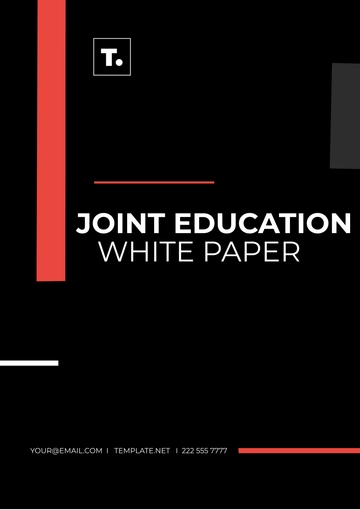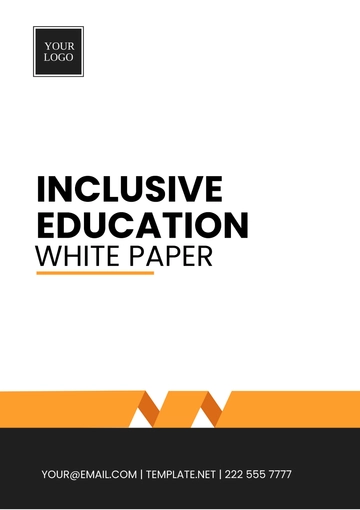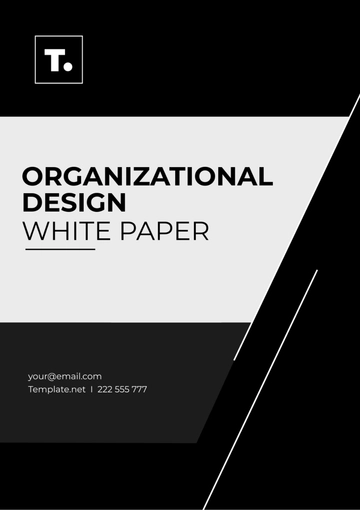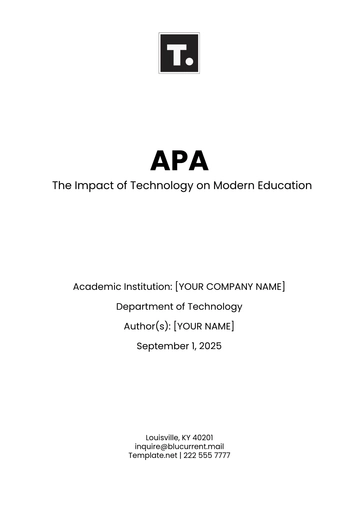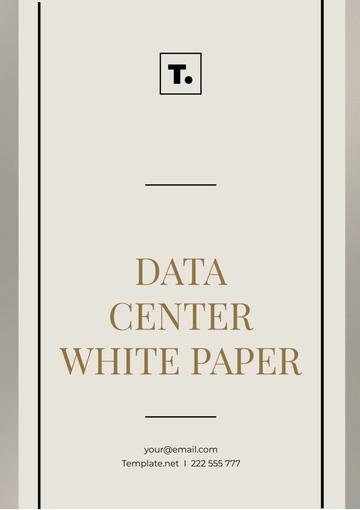Free Inclusive Education White Paper
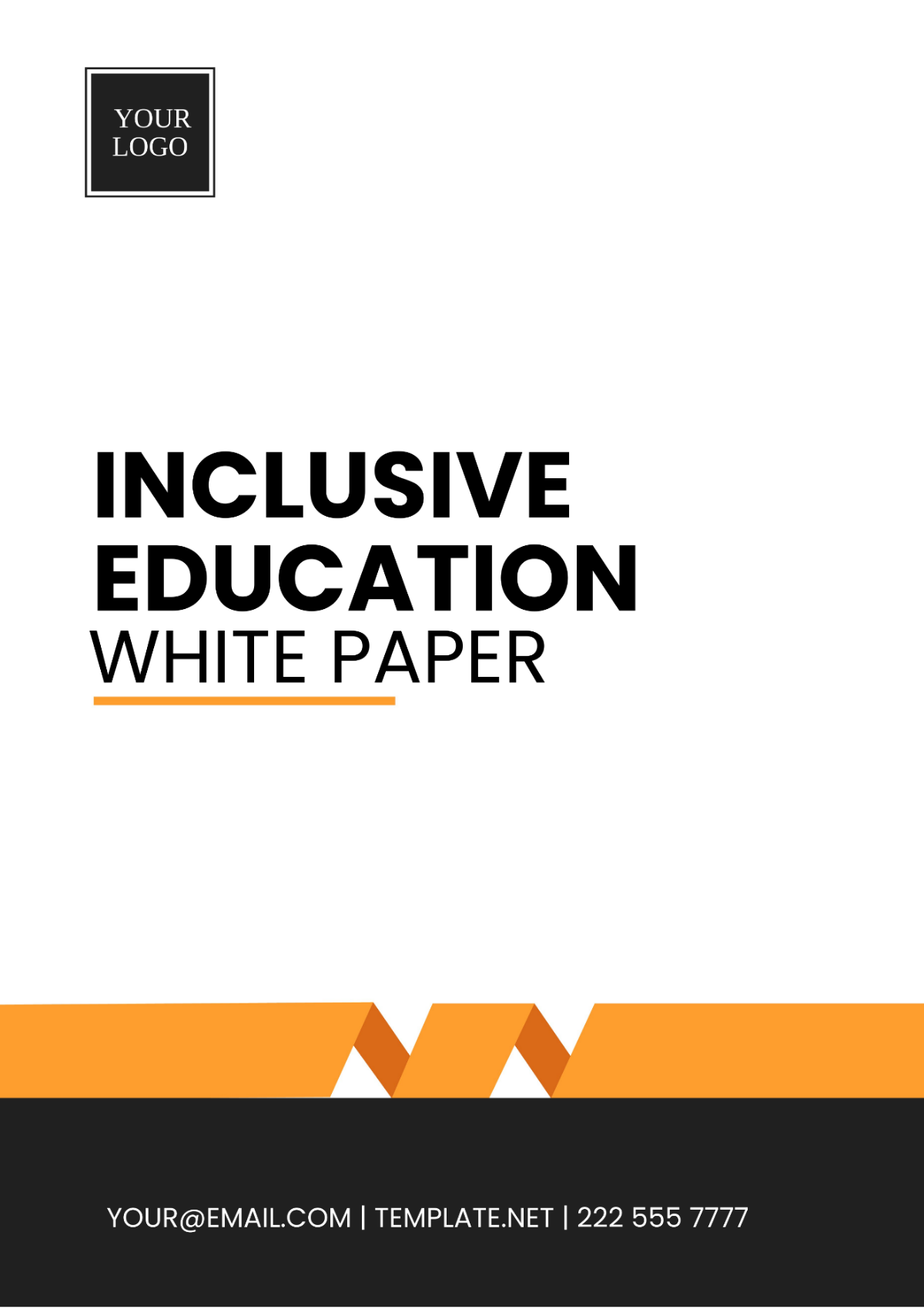
Strategies for a More Accessible Future
Author by: [YOUR NAME]
Organization: [YOUR COMPANY NAME]
Department: [YOUR DEPARTMENT]
Date: [DATE]
I. Executive Summary

The objective of this white paper is to outline strategic approaches and best practices for promoting inclusive education within mainstream educational institutions. This document discusses the benefits and challenges of implementing an inclusive system that supports the learning needs of all students, particularly those with disabilities or special needs. By integrating various insights and data, [YOUR COMPANY NAME] advocates for systems that not only improve educational outcomes but are also equitable and inclusive.
II. Introduction to Inclusive Education
Inclusive education is a methodological approach aiming to include all children in the learning environment, regardless of their physical, intellectual, emotional, linguistic, or other conditions. This paper explores the principles set forth by international frameworks such as the UN Convention on the Rights of Persons with Disabilities (CRPD), which highlights the importance of accessibility and inclusion in achieving high-quality education for all.
III. Challenges to Inclusive Education
Physical Barriers
Social and Cultural Resistance
Inadequate Teacher Training
Lack of Adequate Resources
IV. Recommended Policies for Enhancing Inclusive Education
A. Policy Development
Create and implement policies at the national and regional level that reflect the needs of all students, ensuring that facilities and resources are appropriately allocated. Ongoing monitoring and adaptation of these policies should be conducted in response to educational outcomes and feedback from stakeholders.
B. Inclusion Strategies
Curriculum Adaptation - 30%: Modifying the curriculum to accommodate diverse learning needs and styles is crucial, as it directly impacts how content is delivered and accessed by students with different abilities and learning styles.
Teacher Training Programs - 30%: Establishing compulsory inclusion training for educators is vital to ensure that teachers are equipped with the necessary knowledge and skills to support diverse learners effectively.
Student Support Services - 20%: Introducing comprehensive student support services like counseling and peer support groups is essential for addressing the holistic needs of students with special needs, promoting their well-being and social integration.
Technology Integration - 20%: Leveraging assistive technologies to enhance learning experiences for students with special needs can significantly improve accessibility and engagement in the classroom.
V. Case Studies
Explore multiple case studies demonstrating successful inclusive education initiatives across various settings. Key factors, strategies, and outcomes will be discussed to shed light on practical applications of policy and theory.
VI. Conclusion and Future Directions
This paper concludes with a synthesis of the insights gained from the discussion and case studies, emphasizing the essential components of successful inclusive education systems. Future research directions and potential improvements in policy and practice are proposed to continually foster environments where all students thrive academically and socially.
VII. Contact Information
For more information or to provide feedback on this white paper, please contact [YOUR NAME] at [YOUR COMPANY EMAIL] or visit [YOUR COMPANY WEBSITE].
- 100% Customizable, free editor
- Access 1 Million+ Templates, photo’s & graphics
- Download or share as a template
- Click and replace photos, graphics, text, backgrounds
- Resize, crop, AI write & more
- Access advanced editor
Explore the Inclusive Education White Paper Template on Template.net. This editable and customizable document is tailored for comprehensive education reports. Effortlessly modify content using our Ai Editor Tool for precision and clarity. Customize the white paper to your specific needs with ease. Access today for impactful presentations and insightful analysis in the realm of inclusive education initiatives.
